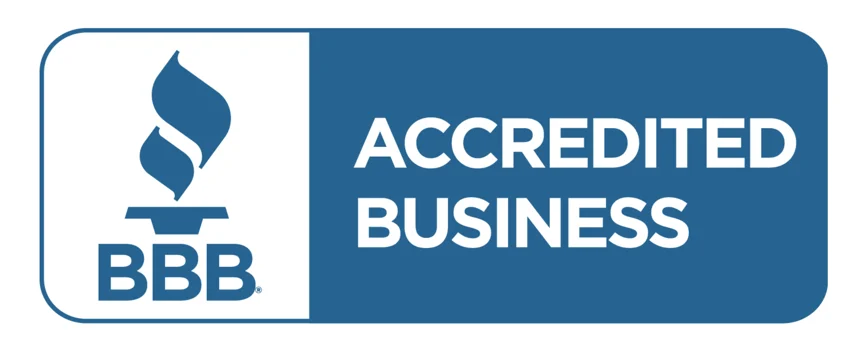Month: December 2020
How to Sell a House by Owner: A Step-by-Step Guide

Selling a house by owner is a very attractive option for many homeowners. Some of the benefits include the flexibility to sell on your own terms and timeline, the ability to fix what you want — or not make any repairs or changes before you sell, and, possibly most importantly, the fact you don’t need to work with a Realtor, nor pay their commission once the house is sold.
Selling a house by owner comes with its own challenges, however. You’ll be left to navigate the fluctuating real estate market on your own without anyone to help you get the word out about your home, show the home to potential buyers, negotiate offers, and help the sale close smoothly.
If you’re determined to sell the house yourself, here are the steps you’ll need to take to make that happen efficiently.
Steps to Selling a House by Owner
Selling a house by owner can be complicated, depending on how much work your home needs before it’s ready to sell and your expectations from the sale. To get started, you’ll need to establish a baseline for what your home is worth, so you can determine the best listing price.
Step 1: Determine Your Home’s Market Value
Finding the market value of your home will help you determine how much you can expect from the sale. There are a few ways you can go about this:
- Talk to a real estate agent. You can ask a Realtor to walk through your home and help you estimate its value. Keep in mind, you may get a biased response as they’ll want you to list with them for a higher price and commission.
- Get an appraisal done. A formal appraisal will provide the most unbiased, accurate estimate of your home’s value. However, these assessments can cost up to $500.
- Make an educated guess. If you do your market research of similar homes in your area and their average sale prices, you may be able to ballpark your own home’s value. In your comparison, consider special features or recent repairs like a pool or brand new roof that may make other homes more desirable and therefore able to fetch a higher sale price.
Step 2: Prepare for the Market
Once you have a value as a starting point, you can start the preparations of listing your home for sale. This is when you go through your home and decide what needs to be fixed, changed, or upgraded to make your home market-ready. These could be small fixes like cosmetic changes to the paint colors or flooring, tasks like a deep cleaning of your home’s carpets, or expensive tasks like roof or foundation repair.
Whatever you decide to do to your home in this stage should be to help it become ready to be sold or sell for a higher price. There’s no point in pouring money into projects you won’t earn back in the sale price — unless they’re essential to potential buyers — such as any damage that makes the home unsafe or would be an immediate expense for the new owners (mold, leaks, damaged wiring/plumbing, etc.).
Preparing your home for sale also includes making your home look more aesthetically pleasing to potential buyers. A thorough cleaning, sprucing of landscaping and exterior of the home, and general decluttering of your home are all important steps to selling a house by owner.
Step 3: Get Your Home Out There
Once your home is ready for sale, one of the most important steps to selling a house by owner is to get your home out there for buyers to find. Unfortunately, this is often the most difficult stage if you’re selling your home yourself. To market your home for sale by owner, here are a few ways to get the word out:
- Word of mouth: tell your friends, share photos on social media, encourage others to share the news with their network.
- Listing online: Post information and photos of your home to real estate sites like Zillow and Realtor.com.
- Print Media: Create brochures and flyers with information about your home sale and post them in visible places.
- Put up a sign: Having a physical sign in front of your home will be a basic, but very effective tool to drum up interest in your home.
- Host an open house: Even if half the attendants are curious neighbors and friends stopping by to look around, they might keep your home in mind if they know someone looking.
Step 4: Wait
In between open houses and showings, all you can do is wait for an offer. Unfortunately, when selling a house by owner, you’re at the mercy of the housing market. If your house has been on the market for a while, you may consider lowering the price or making some other improvements to the home to make it more attractive to potential buyers.
Step 5: Negotiate an Offer
If you do receive an offer on your home — congratulations! This is a big deal, but you’re not done yet. If the offer is well below your asking price, you may need to negotiate with the buyer. The buyer may have other conditions to their offer, such as the completion of certain repairs or even for the seller to cover the closing costs.
This is often a situation where a Realtor can come in handy to field offers and see if a buyer is actually interested in purchasing — and willing to negotiate. If you’re negotiating with buyers yourself, be careful, as being completely inflexible may scare offers away.
Step 6: Close on the Sale
Once the sale price is settled, a written sales contract will be drawn up and signed by both parties. The contract includes the final sale price, conditions of the sale, and where and when the closing will take place. A closing agent leads the legal closing process, and you will need to follow the process and submit documentation when required.
If the buyer is taking out a mortgage to purchase your home, the closing process can be even more tense. Many lenders have certain conditions that must be met before the loan can be issued. If the financing for your buyer falls through for any reason, the sale won’t be able to go through and you’ll be back to square one.
When you sell your home by yourself, you have to be involved in every step, which can be time consuming, expensive, and stressful. If you want to skip this lengthy and involved process, but still sell your home by owner, you have another option: you can sell your house fast for cash to a real estate investor.
Sell a House By Owner to a Real Estate Investor
When you sell to a real estate investor, you get to skip the inconvenient parts of preparing your home for sale like working with a Realtor, and sell your home quickly and hassle-free. Selling to a real estate investor means:
- No repairs, changes, or upgrades before selling your home
- No Realtors, listing fees, or open houses
- No waiting for a buyer, or waiting for financing to come through
When you sell to a real estate investor, you can effectively simplify the steps to selling a house by owner into one. They will make you an offer for your home in its current condition for a cash offer that’s based on its real market value. Also, many real estate investors prefer to work quickly, meaning you can have your home sold in as few as five days.
Selling a house by yourself can be a hassle. If you’re looking to avoid Realtor fees, but you don’t want to go through the whole process of selling a home traditionally, a cash offer might be a great option for you. For your no-obligation offer, reach out to the team at Hometown Development.
How Do I Stop a Property Tax Foreclosure?

Property tax foreclosure is a complicated situation to be in. Once the foreclosure process has begun, it can seem like there’s no way to get ahead of it. Fortunately, you can stop property tax foreclosure and understanding how it works is critical to saving your home and your credit.
What is Property Tax Foreclosure?
Property tax is a fee you pay the county you live in, based on the value of your property. This tax must be paid annually. If you fail to pay your property taxes, the property tax foreclosure process takes three years to complete, after which you may lose your home and significantly damage your credit.
To better understand how to stop property tax foreclosure, let’s start by taking a look at how the property tax foreclosure process works.
Property Tax Foreclosure Process
If property taxes are not paid on time, the tax is considered delinquent and penalties are applied. After one year, if the property tax payment is not made or is incomplete, your property is placed on a preliminary forfeiture list
At this point, you can stop property tax foreclosure if you’re able to pay back the owed taxes and any associated fees and interest. Interest rates during the first year are at 1 percent per month, but they will go up to 1.5 percent after the first year. It will be easier to pay back the missed taxes if you’re able to pay them sooner, rather than wait — even if you can only make payments toward the owed amount.
After Year 2, the property is forfeited to the county treasurer. Forfeiture does not mean the same as foreclosure. You can continue to live in your home after the property has been forfeited. However, once you’re in the forfeiture stage, you can only pay back all the owed taxes in a lump sum in order to stop property tax foreclosure. This is a very difficult thing to do if you’re still struggling to pay back the taxes and accrued interest from the first year of delinquency.
How to Stop Property Tax Foreclosure
Once we can assess where you are in the process, we can understand the best way to stop property tax foreclosure for your situation. If you’re facing forfeiture or property tax foreclosure you still have options to save your home: you can pay off all the owed taxes, or sell your home in order to stop property tax foreclosure.
How to Stop Property Tax Foreclosure by Paying Owed Taxes
To stop property tax foreclosure you will need to pay back the owed taxes. Depending on where you are in the property tax foreclosure process, you may either be able to spread out payments over a year, or you’ll need to make a single payment. If you don’t have the necessary funds right away, there may be emergency loans available to help you meet tax deadlines, after which you can pay back the taxes over a longer period of time.
Some taxpayers may be eligible to apply for deferment of property taxes. Eligibility requirements are steep, and only some low income, disabled, veteran, or elderly applicants may be permitted to defer taxes.
Property tax deferment allows taxpayers more time to pay back the owed taxes. However, it cannot stop property tax foreclosure from moving forward once taxes are due.
Can’t Pay Your Property Taxes? Here’s How to Stop Property Tax Foreclosure
If you can’t afford to pay the property taxes and tax deferment isn’t an option, you will likely need to part with your home in order to resolve the delinquent taxes. Rather than wait for your home to go to auction, you can take control of your situation and sell your home on your own terms. Then, you can pay the owed tax and move on in a home you can better afford.
The advantage of stopping property tax foreclosure by selling your home is that you can avoid the severe hit to your credit that happens in a foreclosure. This puts you in a better position to rebuild your credit and financial status, so you can apply for a loan or purchase another home in the future.
How to Stop Property Tax Foreclosure by Selling Your Home
When you sell your home to stop property tax foreclosure, it’s important to complete the sale quickly. If you sell your home fast, you won’t accrue as much interest, so you’ll be able to pay off the tax and use the rest of the sale towards your next home.
To sell quickly, you can price your home competitively and wait for a buyer to find you, or sell to a real estate investor for a quick and hassle-free sale.
Price Your Home Competitively
When you sell your home on the traditional real estate market, it may take time to prepare your home for sale, work with a Realtor, and wait for a buyer to make an offer. Pricing your home competitively may entice a buyer to purchase your home in time to stop property tax foreclosure. Alternatively, if you don’t want to go through the process and hassle of selling your home this way, you can sell to a real estate investor.
Sell Your Home to a Real Estate Investor
Selling your home to a real estate investor is a great option if you need to sell quickly. Real estate investors will purchase your home as-is, meaning no preparation needed to get it ready to sell. They will make you a fair offer based on the market value of your home in its current condition.
Also, because offers from real estate investors are often in cash, the closing process is simplified, so you can close the sale in as few as five days or on your own timeline. If you’re looking for a fast, simple option to sell your home to stop property tax foreclosure, this is it.
If your property is at risk of property tax foreclosure, now is the time to talk to Hometown Development. Foreclosures become final at the end of March, so there’s still plenty of time to find a solution. Let our team help.






